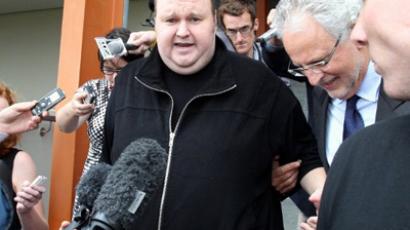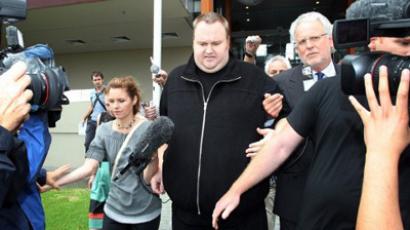‘Web users want freedom, not free stuff’ – UK Pirate Party boss
Internet activists do not rally for “free online stuff,” the leader of the UK Pirate Party told RT. Rather, they protest against giving government tools to censor the web and to restrict civic freedoms.
Online users who came to protest against ACTA bill in Europe and SOPA and PIPA legislations in the United States, did not rally for “free online stuff” but were inspired by more selfless goals, leader of the UK Pirate Party Loz Kaye says. "It is not about free stuff. It is about free people and free expression – that is what is driving people out onto the street,” he said.“We are constantly told by governments when it suits them how important the internet is…But suddenly when it comes to home territory they do not seem to like to be challenged,” Kaye added. “What we have always been saying in the Pirate Party: it is not simply that it is about culture on this particular area, it is about ‘what are the tools we are giving to our governments?’ We are giving our governments tools to censor the internet."Despite lobbyists for entertainers saying that their business is currently in a serious crisis because of the internet property rights violations, it is actually not true, Kaye stressed."There is no crisis,” he said. “The truth of the matter is that in the United States, more music was sold than ever before last year. Here in the United Kingdom, box office receipts hit the billion- pound mark for the first time."Paradoxically, it is the very free and open internet entertainment giants fight against, that has brought them record revenues in recent years, Kaye said. "One of the things that is really interesting is that we are seeing how the free web is in fact pushing growth for artists,” he said. “We are seeing that the growth in music sales is being pushed by digital. It is being pushed by the fact that there is a free and open-functioning web.”Therefore, instead of demanding draconian measures against internet users and service providers, entertainers would be better off getting creative and use revolutionary opportunities the web offers, Kaye believes. "One of the real problems for artists is actually trying to respond to the new environment, so something like streaming services, for example," he said. The law should also be changed to keep up with the ongoing changes, Kaye added. “What we have to realize is that a copyright is a kind of law that is made from entirely different set of circumstances,” he said. “It is really not that controversial to say that it is no longer fit for purpose in the digital age."














